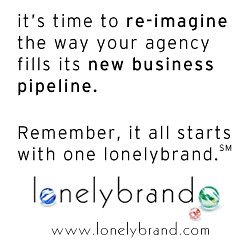
It was recently revealed that Facebook has amended it's Terms Of Service (TOS) Agreement to include:
"You hereby grant Facebook an irrevocable, perpetual, non-exclusive, transferable, fully paid, worldwide license (with the right to sublicense) to (a) use, copy, publish, stream, store, retain, publicly perform or display, transmit, scan, reformat, modify, edit, frame, translate, excerpt, adapt, create derivative works and distribute (through multiple tiers), any User Content you (i) Post on or in connection with the Facebook Service or the promotion thereof subject only to your privacy settings or (ii) enable a user to Post, including by offering a Share Link on your website and (b) to use your name, likeness and image for any purpose, including commercial or advertising, each of (a) and (b) on or in connection with the Facebook Service or the promotion thereof."
and the following:
"You may remove your User Content from the Site at any time. If you choose to remove your User Content, the license granted above will automatically expire, however you acknowledge that the Company may retain archived copies of your User Content."
Does Facebook own your content? Because Facebook provides a valuable and free service, does it have the right to own and archive user submitted information? Legally this is the case, but many users are outraged about the change, citing privacy concerns such as:
Does Facebook own my pictures?
Is Facebook archiving my content forever?
Will my Facebook content someday be indexed on Google despite privacy filters?
Are my private messages and conversations being recorded somewhere even after deletion?
Could law enforcement or court enforced discovery use archived information in future cases to prove or disprove legal matters?
Will advertisers be able to purchase my history regarding products and services for quantitative analysis?
Clearly, Facebook has some damage control issues to deal with; but the real question is do the core users of Facebook really care?
Is it important to you that your information has been claimed as property?
If you do not like what Facebook has done, I recommend deleting your content or entering bogus information, then keeping your profile active for at least 120 days to allow the blank or dummy information to be archived, then simply delete your Facebook profile altogether.
PEOPLE WHO READ THIS ARTICLE ALSO READ:
> Privacy, Advocacy, and Conversations: What Does It Mean For Advertising?
> Google Latitude Has Great Advertising Potential
> Google Friend Connect Active on ADMAVEN
"You hereby grant Facebook an irrevocable, perpetual, non-exclusive, transferable, fully paid, worldwide license (with the right to sublicense) to (a) use, copy, publish, stream, store, retain, publicly perform or display, transmit, scan, reformat, modify, edit, frame, translate, excerpt, adapt, create derivative works and distribute (through multiple tiers), any User Content you (i) Post on or in connection with the Facebook Service or the promotion thereof subject only to your privacy settings or (ii) enable a user to Post, including by offering a Share Link on your website and (b) to use your name, likeness and image for any purpose, including commercial or advertising, each of (a) and (b) on or in connection with the Facebook Service or the promotion thereof."
and the following:
"You may remove your User Content from the Site at any time. If you choose to remove your User Content, the license granted above will automatically expire, however you acknowledge that the Company may retain archived copies of your User Content."
Does Facebook own your content? Because Facebook provides a valuable and free service, does it have the right to own and archive user submitted information? Legally this is the case, but many users are outraged about the change, citing privacy concerns such as:
Does Facebook own my pictures?
Is Facebook archiving my content forever?
Will my Facebook content someday be indexed on Google despite privacy filters?
Are my private messages and conversations being recorded somewhere even after deletion?
Could law enforcement or court enforced discovery use archived information in future cases to prove or disprove legal matters?
Will advertisers be able to purchase my history regarding products and services for quantitative analysis?
Clearly, Facebook has some damage control issues to deal with; but the real question is do the core users of Facebook really care?
Is it important to you that your information has been claimed as property?
If you do not like what Facebook has done, I recommend deleting your content or entering bogus information, then keeping your profile active for at least 120 days to allow the blank or dummy information to be archived, then simply delete your Facebook profile altogether.
PEOPLE WHO READ THIS ARTICLE ALSO READ:
> Privacy, Advocacy, and Conversations: What Does It Mean For Advertising?
> Google Latitude Has Great Advertising Potential
> Google Friend Connect Active on ADMAVEN




